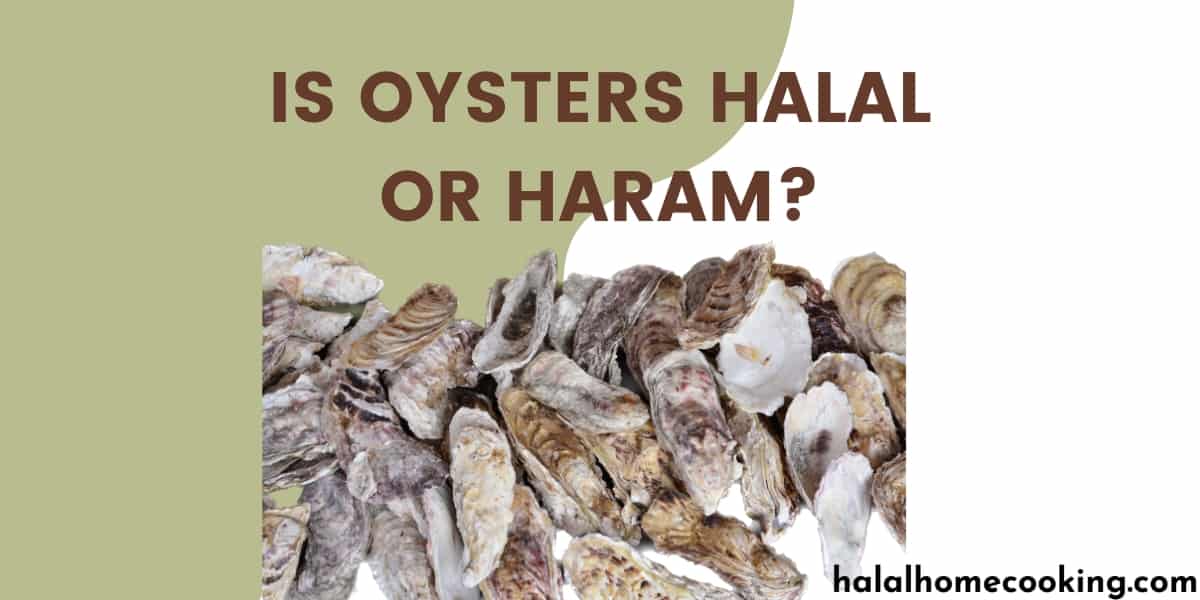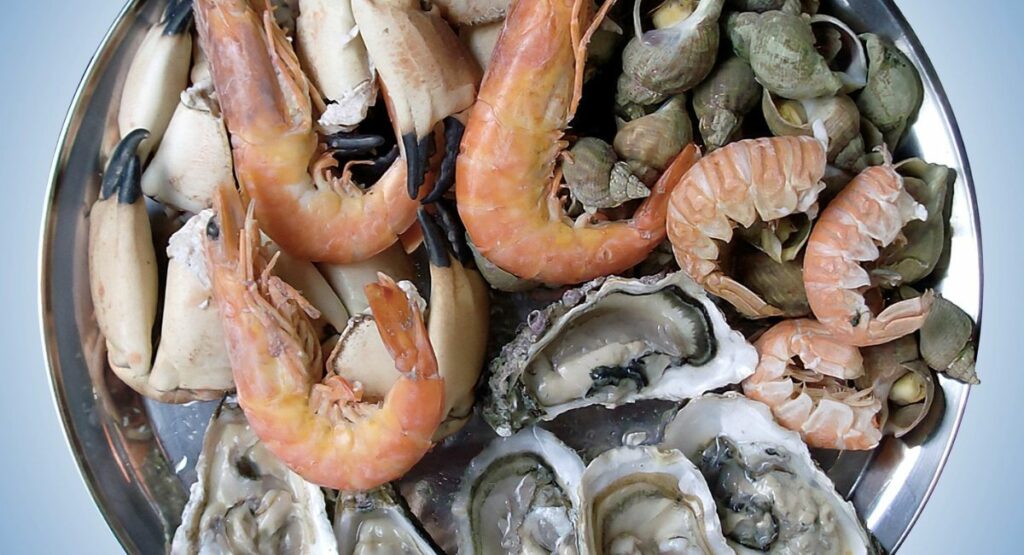Is Eating Oysters Halal
Introduction
When it comes to dietary restrictions, many religious and cultural practices influence what individuals can and cannot consume. For Muslims, adhering to halal guidelines is an essential aspect of their faith. Halal refers to permissible or lawful according to Islamic law, and it sets forth specific guidelines for food and drink consumption. One question that often arises in discussions about halal food is whether eating oysters is halal. In this article, we will explore the halal guidelines for food and delve into the topic of oyster consumption in relation to Islamic dietary restrictions.
The Halal Guidelines for Food
Halal guidelines for food encompass more than just the type of meat that can be consumed. Here are some key principles of halal food:
1. Prohibited Ingredients: Foods that contain pork or its by-products, alcohol, or any other haram (forbidden) ingredient are considered not halal.
2. Meat Preparation: Only meat from animals that have been slaughtered according to Islamic guidelines, known as Zabiha, is considered halal. The animal must be alive during the slaughter and the name of Allah must be invoked.
3. Seafood: Seafood, in general, is considered halal, with a few specific exceptions for certain types of sea creatures.
Understanding Halal and Haram
The terms halal and haram define what is permissible and forbidden in Islam, respectively. While the Quran provides some direct guidance on halal and haram foods, there are also different interpretations within Islamic scholars and cultures. When it comes to seafood, including oysters, opinions may vary. Some scholars consider oysters to be halal, while others categorize them as haram due to their nature as filter feeders, which some interpretations view as consuming impurities.
It’s important to note that individual beliefs and personal interpretations may influence whether someone considers oysters halal or haram. Consulting with knowledgeable scholars or local halal certification authorities can provide further guidance and clarification on this matter.
In conclusion, the halal guidelines for food cover a wide range of dietary restrictions for Muslims. While seafood, in general, is considered halal, the specific classification of oysters varies among scholars. Regardless, it is always recommended to seek guidance and clarification from knowledgeable sources to ensure individual compliance with Islamic dietary restrictions.

The Controversy Surrounding Oysters
The question of whether oysters are halal or permissible in Islamic dietary laws has sparked a debate among scholars and Muslims. While some believe that oysters are halal, others argue that they are not. Here are the different opinions on oysters and their status in Islamic dietary laws.
Different Opinions on Oysters
1. Permissible (Halal): Some scholars argue that oysters are halal because they are mollusks and do not fall into the category of forbidden seafood, such as fish without scales or shellfish like crabs and lobsters. They believe that since oysters do not have blood and are not predatory or harmful, they can be consumed by Muslims.
2. Not Permissible (Haram): On the other hand, some scholars believe that oysters are haram because they live in water and are considered to be part of the “creeping animals” category mentioned in the Quran. They argue that since oysters do not have fins or scales, they should not be consumed.
Arguments in Favor of Oysters being Halal
Those who believe that oysters are halal put forth the following arguments:
1. Lack of Evidence: There is no explicit prohibition in the Quran or Hadith that specifically mentions oysters as being haram. Therefore, they argue that oysters should be considered halal by default unless there is clear evidence proving otherwise.
2. Similarity to Halal Seafood: Oysters are often compared to other halal seafood, such as clams and mussels, which are widely accepted as permissible in Islamic dietary laws. They argue that since oysters share similarities with these halal seafood, there is no reason to consider them as haram.
3. Nutritional Benefits: Oysters are known for their nutritional value and are a good source of protein, zinc, and omega-3 fatty acids. Those who argue for their halal status believe that their consumption can provide health benefits to Muslims without violating Islamic dietary laws.
It is important to note that the issue of oysters being halal or haram is a matter of interpretation and personal beliefs. Muslims who are unsure or have concerns about consuming oysters should consult with a knowledgeable scholar or religious authority for guidance.
Oyster Industry Practices
Oysters are a popular seafood delicacy enjoyed by many people around the world. If you are someone who follows halal dietary guidelines, you may wonder if eating oysters is halal. Here is some information about the oyster industry practices that may help you make an informed decision:
Oyster Harvesting: Oysters are typically harvested from their natural habitats, such as oyster beds or reefs, by farmers or fishermen. The oysters are either hand-picked from the water or removed from their shells and graded for quality.
Oyster Processing: Once harvested, oysters may undergo various processes depending on the intended use. These processes can include cleaning, shucking (removing the shell), and packaging. Some oysters may be pasteurized or frozen for preservation.
Ingredients used in Oyster Farms
Oyster feed: Oysters are filter feeders, meaning they obtain nutrients by filtering water and consuming microorganisms. Some oyster farms may use natural food sources found in the water, while others may supplement the oysters’ diet with oyster feed or algae.
Preservatives and Additives: In the processing and packaging of oysters, preservatives and additives may be used to maintain freshness and extend shelf life. Common additives include salt, citric acid, and potassium sorbate. These additives are generally considered halal.
It’s important to note that Islamic dietary laws can vary among different schools of thought and interpretations. Some individuals may consider oysters to be halal, while others may consider them haram due to the methods of harvesting and processing. If you have specific dietary concerns or restrictions, it is recommended to consult with a religious authority or halal certification agency for guidance.

Opinions of Islamic Scholars
The question of whether eating oysters is halal or permissible in Islam has been a topic of discussion among Islamic scholars. While there is no consensus among scholars, there are different opinions that can help shed light on the matter. Here are some of the key perspectives:
1. Prohibitive Opinion: Some scholars argue that oysters should be considered haram or forbidden because they belong to the category of sea creatures that do not have scales, which are mentioned as a prerequisite for halal seafood in the Qur’an.
2. Permissive Opinion: Other scholars hold the view that oysters should be considered halal since they are classified as shellfish and not fish. They argue that the restriction on seafood without scales only applies to fish and not other aquatic creatures.
Different Interpretations of Halal
It’s important to note that the classification of what is halal and haram can vary among different Islamic schools of thought and individual scholars. Some factors that may influence the differing opinions include:
1. Understanding of the Qur’anic Texts: Scholars may have different interpretations of the relevant verses in the Qur’an that relate to what is permissible to eat.
2. Analogy and Reasoning: Scholars may use analogy and reasoning to derive rulings on specific issues, taking into account the broader principles of Islamic dietary laws.
3. Cultural and Regional Practices: The dietary practices of different Muslim communities and regions can also influence the interpretations of what is considered halal.
It is recommended for individuals who follow Islamic dietary guidelines to consult with knowledgeable scholars or reputable Islamic organizations for guidance on specific food items, including oysters, based on their personal circumstances and beliefs.

Halal Certifications and Oyster Products
Oysters are bivalve mollusks and are part of the shellfish family, which includes clams, mussels, and scallops. In Islam, there is a debate surrounding the permissibility of consuming shellfish, including oysters. While opinions may vary among scholars, it’s important to note that there are certified halal oyster products available in the market. These products are specifically produced and processed in accordance with halal guidelines, ensuring that they are permissible for consumption by Muslims. It’s recommended for those who adhere to halal dietary restrictions to look for the following certifications when purchasing oyster products:
- Halal Certification Authorities: Look for products that have been certified by recognized halal certification authorities, such as the Islamic Food and Nutrition Council of America (IFANCA), the Halal Food Council of Europe (HFCE), or local halal certification organizations.
- Halal Labels: Look for the halal label on the packaging of oyster products, indicating that they have been certified as halal.
It’s important to conduct thorough research and seek guidance from knowledgeable sources, such as imams or halal certification authorities, to ensure that the oyster products you consume align with your religious beliefs.
The Importance of Halal Certification
Halal certification plays a crucial role in providing Muslims with the assurance that the products they consume are in compliance with Islamic dietary guidelines. Here are some key reasons why halal certification is important:
- Compliance with Religious Dietary Restrictions: Halal certification ensures that products have been produced, processed, and handled according to the Islamic dietary laws. It provides peace of mind to Muslims, especially when it comes to consuming food and beverages that may contain ingredients of animal origin.
- Traceability and Transparency: Halal certification involves extensive auditing and verification processes, which enhance traceability and transparency within the food industry. Certification authorities ensure that halal products undergo rigorous testing and adhere to strict quality control measures.
- Consumer Confidence: Halal certification helps build trust and confidence among Muslim consumers. It assures them that the products they purchase have been ethically sourced, and all necessary steps have been taken to ensure their compliance with halal requirements.
- Access to a Larger Market: Halal certification opens doors for businesses to enter the global halal market, which is estimated to be worth trillions of dollars. With the growing demand for halal products worldwide, certification allows businesses to cater to a larger consumer base and expand their market reach.
It’s important for individuals who seek halal products, including oyster products, to look for reputable certifications and labels to ensure that they are purchasing items that align with their religious beliefs and dietary restrictions.
For further information on the topic, you can refer to Halal Certification Authorities and their guidelines.





